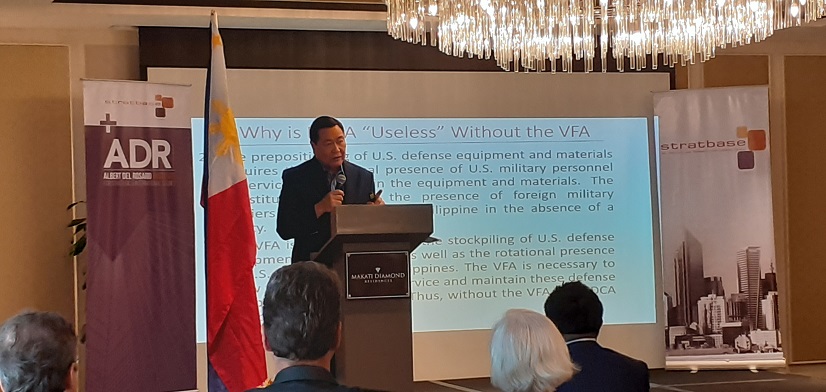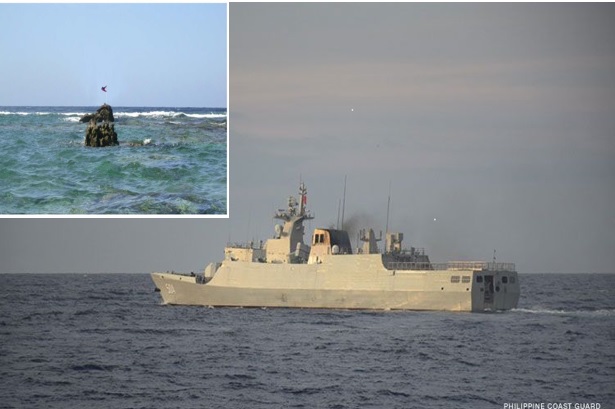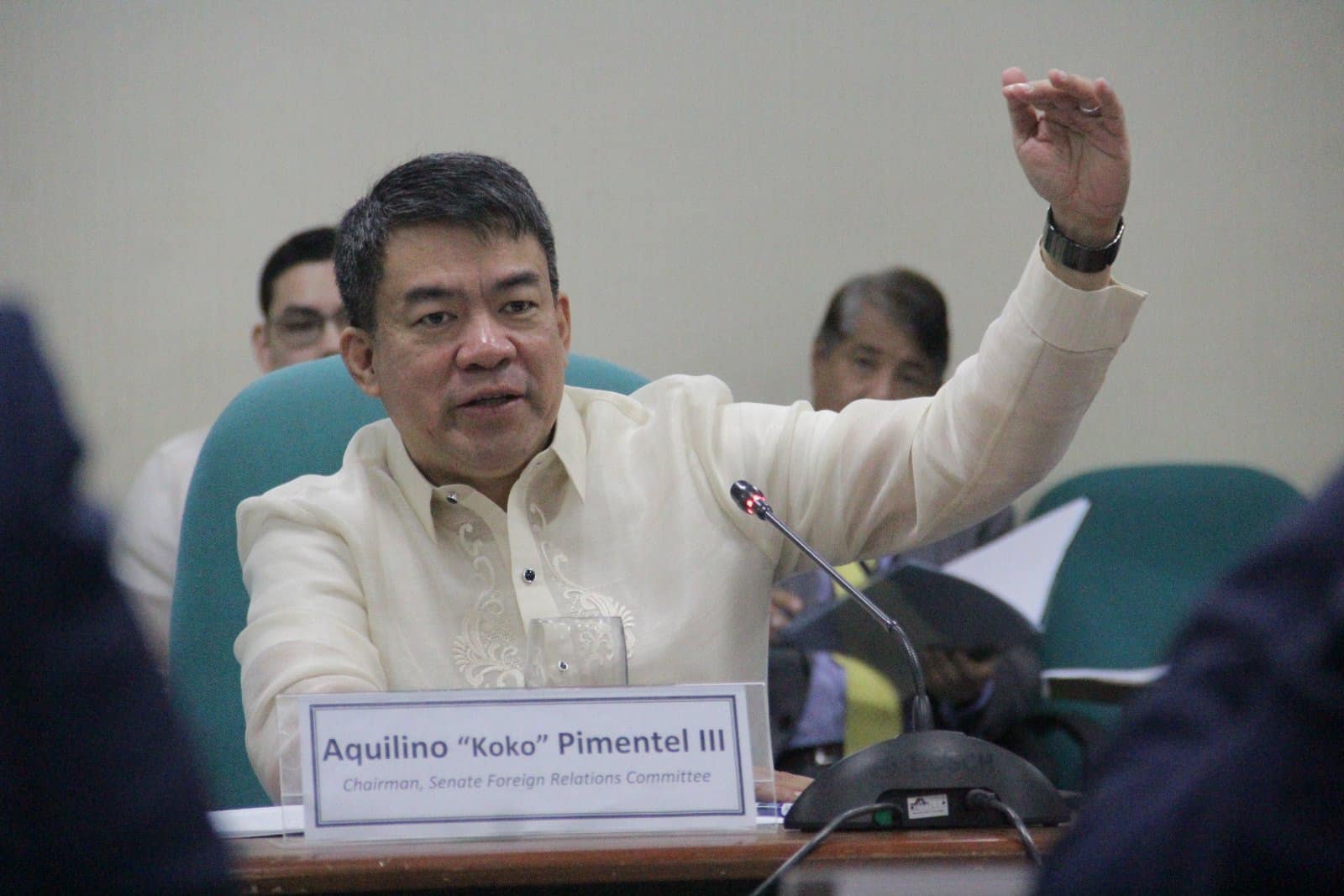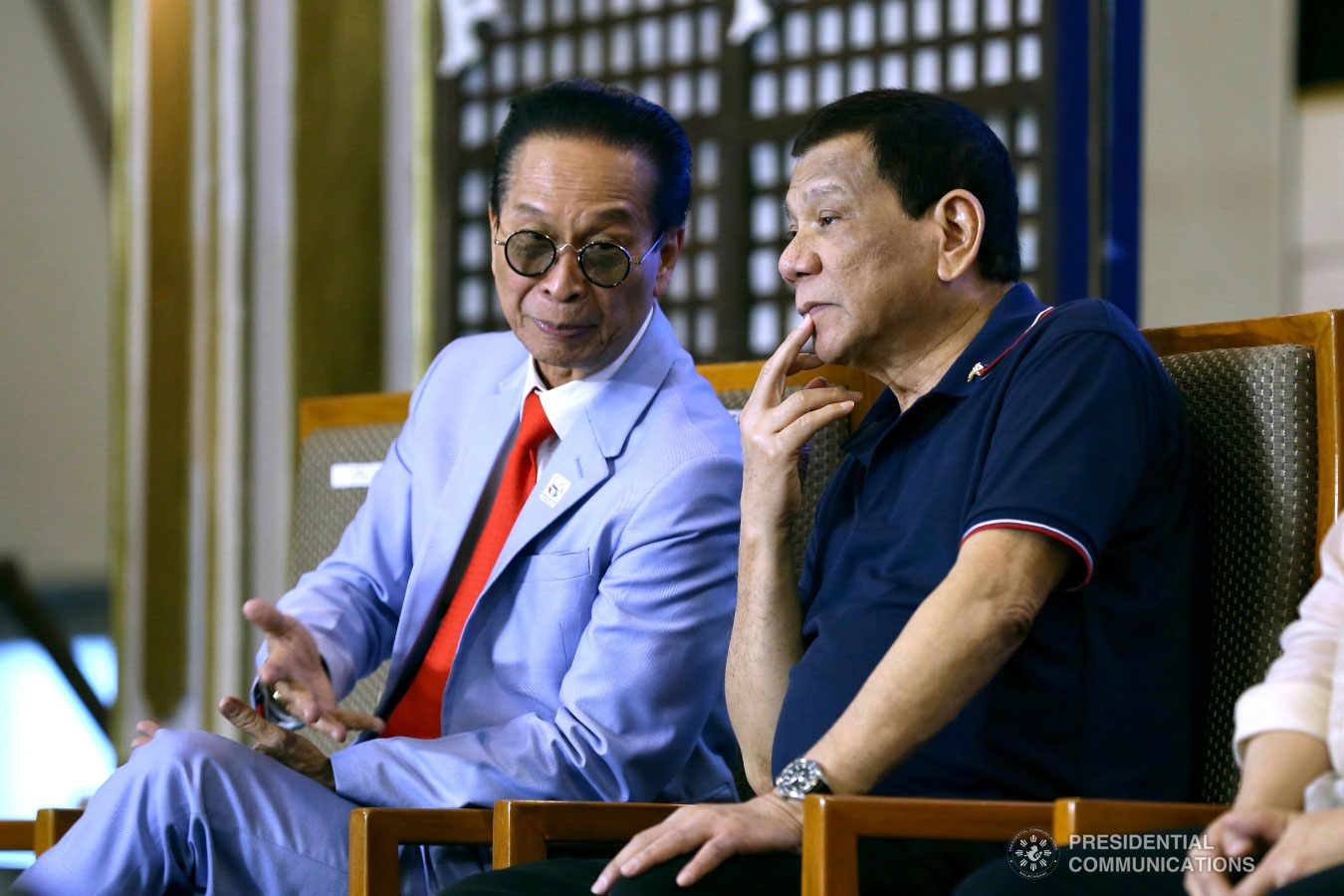
Retired Associate Justice Antonio T. Carpio, Renato de Castro, Philippine Ambassador to the U.S. Jose Manuel Romualdez at a forum on the Visiti8ng Forces Agreement. Moderator is Richard Heydarian. Photo by Ivel John M. Santos.
President Rodrigo Duterte could unilaterally abrogate the 1951 RP-US Mutual Defense Treaty (MDT) once the Supreme Court decides that he has the authority to terminate the Visiting Forces Agreement (VFA), retired Associate Justice Antonio Carpio warned on Friday.
Speaking at the “Post-VFA: PH-US Alliance Quo Vadis?” forum organized by Stratbase ADR Institute at Diamond Residences in Makati, Carpio said: “If the Supreme Court will rule that the President , acting alone, can terminate a treaty, and the MDT is a treaty, then it can be terminated (unilaterally.)”
This developed as Philippines Ambassador the U.S. Jose Manuel “Babe” Romualdez, in the same forum, said he and his US counterpart, Ambassador Sung Kim, are now studying ways to replace the VFA. They are looking at agreements of the Philippines with Japan and Australia as models.
“We are now in the process of trying to find ways and means to be able to see how we can either come out with something similar, perhaps,” Romualdez said.
In an interview before the start of the forum, Carpio said a Senate resolution is important for the Supreme Court to decide on the issue of whether the President can unilaterally abrogate a treaty that was ratified by the Senate.Earlier, Senate President Vicente “Tito” Sotto III last week said that the Senate is considering to question before the Supreme Court the legality of Duterte’s unilateral termination of the 1998 Visiting Forces Agreement last Feb. 11.
Senate Minority Leader Franklin Drilon had said many senators share his stand that “if treaties and international agreements the President entered into cannot be valid without the approval of the Senate, the termination of, or withdrawal from, the same should only be effective with the concurrence of the Senate.”
Should the Senate file a petition to the Supreme Court and, in turn, the High Tribunal decides that the President can unilaterally scrap an agreement such as the VFA that had been concurred in by the Senate, Carpio said the MDT would be next in Duterte’s agenda.
The MDT is the umbrella accord that governs security relations between the Philippines and the United States signed at the time when the U.S. had military bases in the country. The Philippine Senate, on September 16, 1991, junked the renewal of the 1947 Military Bases Agreement that paved the way for the closure ofClark Air Base in November 1991 and Subic Naval Base in December 1992.
The key provision in the almost 70-year-old MDT states that “an armed attack on either of the Parties is deemed to include an armed attack on the metropolitan territory of either of the Parties, or on the Island territories under its jurisdiction in the Pacific Ocean, its armed forces, public vessels or aircraft in the Pacific.”
The VFA, on the other hand, spells out the status of American troops coming to the Philippines under EDCA, such as during joint military exercises, storage and prepositioning of defense materials and relief operations.
The 2014 Enhanced Defense Cooperation Agreement (EDCA) would be easier to scrap. “It is just an executive agreement. It can be terminated anytime,” Carpio pointed out.
There are pending petitions with the Supreme Court involving the unilateral decision of Duterte to withdraw from the Rome Statue on the International Criminal Court (Rome Statute) on March 17, 2018.
“I think the mindset of the President,” Carpio said, was articulated by Presidential Spokesperson Salvador Panelo who said that for consistency, “then all treaties must go.”
The termination of the VFA will make other military pacts with the United States “useless,” Carpio said. Without the VFA and EDCA, “the Philippines will not be prepared to repel jointly with the U.S. an armed aggression against the Philippines by a third state,” he added.
The retired Supreme Court justice said Duterte’s motive in junking the VFA in the guise of pursuing an ‘independent foreign policy’ is actually tantamount to being “independent from the U.S. but dependent on China for all time, and a protectorate of Russia.”
Former Foreign Affairs Secretary Albert Del Rosario renewed his call on Congress, the Supreme Court and the military to resist Duterte’s VFA termination, which he considered as “a national tragedy.”
Del Rosario, who initiated the case against China in the Permanent Court of Arbitration, said terminating the VFA “would serve to actualize our pivot towards China” despite the “strong and vehement objections of our people.”
“[T]his shift in foreign policy of casting aside a reliable ally in favor of an aggressive northern neighbor that wants to deprive us of our land and seas is incomprehensible and harmful to our country and our people,” he said.
Renato De Castro, a trustee and program convenor at Stratbase ADR Institute, proposed in the VFA forum that the U.S. and the Philippines resort to a security partnership instead as their alliance is in “deep crisis.” He said that “instead of unravelling the 70-year-old MDT, the Philippines and the U.S. might consider downgrading their alliance into a security partnership.”
He said that security partnership allows countries to “engage in periodic security meetings and consultations, joint exercises, and other limited defense related activities without a formal defense treaty.”




